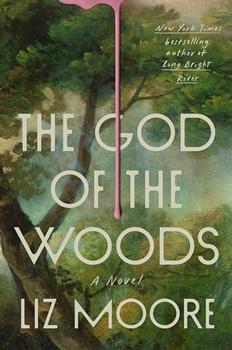Summary | Excerpt | Reviews | Readalikes | Genres & Themes | Author Bio

Elfrida
Before Elfrida Phipps left London for good and moved to the country, she made a trip to the Battersea Dogs' Home, and returned with a canine companion. It took a good-and heart-rending-half-hour of searching, but as soon as she saw him, sitting very close to the bars of his kennel and gazing up at her with dark and melting eyes, she knew that he was the one. She did not want a large animal, nor did she relish the idea of a yapping lap-dog. This one was exactly the right size. Dog size.
He had a lot of soft hair, some of which fell over his eyes, ears that could prick or droop, and a triumphant plume of a tail. His colouring was irregularly patched brown and white. The brown bits were the exact shade of milky cocoa. When asked his ancestry, the kennel maid said she thought there was Border collie there, and a bit of bearded collie, as well as a few other unidentified breeds. Elfrida didn't care. She liked the expression on his gentle face. She left a donation for the Battersea Dogs' Home, and her new companion travelled away with her, sitting in the passenger seat of her old car and gazing from the window in a satisfied fashion, as though this were the life to which he was happy to become accustomed.
The next day, she took him to the local Poodle Parlour for a cut, shampoo, and blow-dry. He returned to her fluffy and fresh and smelling sweetly of lemonade. His response to all this sybaritic attention was a show of faithful, grateful, and loving devotion. He was a shy, even a timid, dog, but brave as well. If the doorbell rang, or he thought he spied an intruder, he barked his head off for a moment and then retreated to his basket, or to Elfrida's lap. It took some time to decide on a name for him, but in the end she christened him Horace.
Elfrida, with a basket in her hand, and Horace firmly clipped to the end of his lead, closed the front door of her cottage behind her, walked down the narrow path, through the gate, and set off down the pavement towards the post office and general store.
It was a dull, grey afternoon in the middle of October, with nothing much to commend about it. The last of autumn's leaves fell from trees, with an unseasonably icy breeze too chill for even the most ardent of gardeners to be out and about. The street was deserted, and the children not yet out of school. Overhead, the sky was low with clouds, that shifted steadily and yet never seemed to clear. She walked briskly, Horace trotting reluctantly at her heels, knowing that this was his exercise for the day and he had no alternative but to make the best of it.
The village was Dibton in Hampshire, and here Elfrida had come to live eighteen months ago, leaving London forever and making for herself a new life. At first she had felt a bit solitary, but now she couldn't imagine living anywhere else. From time to time, old acquaintances from her theatre days made the intrepid journey from the city and came to stay with her, sleeping on the lumpy divan in the tiny back bedroom that she called her work-room, which was where she kept her sewing machine and earned a bit of pin money making elaborate and beautiful cushions for an interior decorating firm in Sloane Street.
When these friends departed, they needed reassurance: "You're all right, aren't you, Elfrida?" they would ask. "No regrets? You don't want to come back to London? You're happy?" And she had been able to set their minds at rest. "Of course I am. This is my geriatric bolt-hole. This is where I shall spend the twilight of my years."
So, by now, there was a comfortable familiarity about it all. She knew who lived in this house, in that cottage. People called her by her name. "Morning, Elfrida," or "Lovely day, Mrs. Phipps." Some of the inhabitants were commuting families, the man of the house setting out early each morning to catch the fast train to London and returning late in the evening to pick up his car from the station park and drive the short distance home. Others had lived here all their lives in small stone houses that had belonged to their fathers and their grandfathers before that. Still others were new altogether, inhabiting the council estates that ringed the village, and employed by the electronics factory in the neighbouring town. It was all very ordinary, and so, undemanding. Just, in fact, what Elfrida needed.
Winter Solstice by Rosamunde Pilcher. © August 1, 2000. Used by permission.




Your guide toexceptional books
BookBrowse seeks out and recommends the best in contemporary fiction and nonfiction—books that not only engage and entertain but also deepen our understanding of ourselves and the world around us.